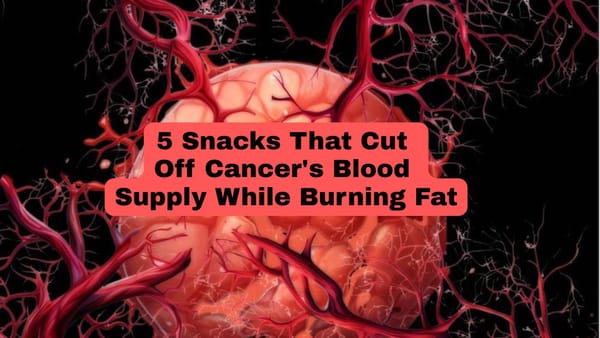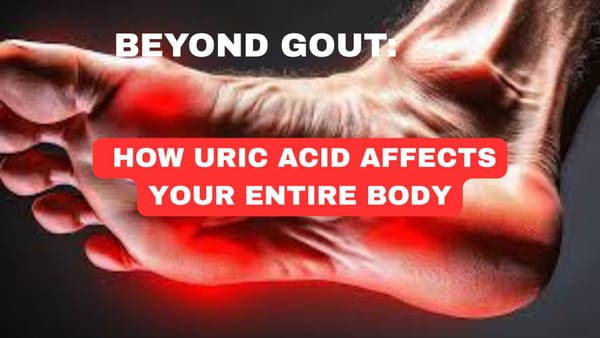From Diet to Detention: The Nutritional Impact on Crime
Understanding criminal and antisocial behaviour is complex. Could inadequate nutrition be a significant but overlooked contributor to criminal behaviour?

For decades, criminal justice systems worldwide have operated on the assumption that behaviour is solely a matter of free will. However, this perspective overlooks a crucial factor: the role of the brain in shaping human behaviour. As a physical organ, the brain requires proper nutrition to function optimally. This raises an important question: Could inadequate nutrition be a significant, yet often overlooked, contributor to criminal behaviour?
Rethinking the Causes of Crime
Understanding what causes criminal or antisocial behaviour is complex. Traditional views on crime causation involve a range of theories and assumptions, often lacking rigorous scientific backing. There’s a pressing need to question these assumptions and explore whether the influence of diet on behaviour has been overlooked in criminal justice. A complete tier of research may be missing, one that connects poor nutrition to antisocial behaviour and, by extension, crime.
The Brain-Behaviour Connection
Despite comprising only 2% of body mass, the brain consumes about 20% of our available energy. What we eat not only affects our physical appearance but also contributes to the composition and functioning of our brains. Good nutrition provides:
- Energy for brain function
- Raw materials for neurotransmitters that influence brain communication
- The operating environment for the brain

Modern diets have undergone significant changes in a relatively short period, yet there has been little systematic examination of how these changes might impact brain function or behaviour. This oversight may have led us to underestimate the influence of nutrition on our actions and decision-making processes.
Nutrition's Impact on Antisocial Behaviour
The link between diet and behaviour is not a new concept. In the early 19th century, prison reformers advocated for adequate nutrition to rehabilitate criminals. While these ideas fell out of favour, recent scientific studies have revived interest in the connection between nutrition and antisocial behaviour.
Key findings from various studies include:

Groundbreaking Studies on Diet and Crime
One of the most compelling pieces of evidence comes from a study by the charity Natural Justice at HMYOI Aylesbury in the UK. This rigorous, double-blind experiment involved 231 young adult prisoners randomly assigned to receive either nutrient supplements or placebos.
The results were striking:
Prisoners receiving nutrient supplements committed 26.3% fewer offences on average compared to those taking placebos. Those who received supplements for at least two weeks showed an increase of 37% in non-violent behaviour.
These findings are particularly significant because:
- The study design controlled for ethnic, social, and administrative factors.
- The placebo group showed no real change in their propensity to offend.
- The effect was achieved solely through improved nutrition, without any other interventions.
Follow-up studies in other countries have yielded similar results:
A Dutch study reported a 47% difference in offending rates between prisoners taking active supplements versus placebos. When drug-related offenders were excluded, this difference increased to 61%. A Californian study of 402 subjects found comparable results using a similar supplement formulation.
Challenging Assumptions about Culpability
These findings raise important questions about culpability in criminal behaviour. If poor nutrition can significantly influence behaviour without an individual's knowledge, how does this affect our understanding of free will and personal responsibility?
Consider the following points:
- Participants in the Aylesbury study couldn't accurately know whether they consumed supplements or placebos, indicating that the effects on behaviour occurred without their awareness.
- If an individual is unknowingly affected by poor nutrition, those around them are unlikely to recognize this influence, potentially leading to misattributions of behaviour to personality defects.
- On a societal scale, these unnoticed influences could shift norms of acceptable behaviour without our conscious awareness.

Nutrition as a Crime Prevention Strategy
The potential of nutrition as a crime prevention tool extends beyond prisons. A longitudinal study in Mauritius found that children given an enriched nutritional and social environment at ages 3-5 were significantly less likely to engage in antisocial or criminal behaviour in their late teens and early twenties.
Key considerations for implementing nutrition-based strategies:
- Community-based interventions: Applying similar nutritional approaches outside of prisons could have a broader impact on crime prevention.
- Early intervention: Improving nutrition in childhood could potentially reduce the likelihood of future criminal behaviour.
- Education: Teaching about healthy food choices, particularly in at-risk populations, could empower individuals to make better nutritional decisions.
- Prison food reform: Reassessing prison diets and canteen options to prioritize brain-healthy foods could improve behaviour and rehabilitation outcomes.
Implications for Criminal Justice and Society
The emerging evidence on the link between nutrition and crime has far-reaching implications:
- Rethinking culpability: We may need to reconsider how we attribute blame and responsibility in light of these physiological influences on behaviour.
- Cost-effective interventions: Nutritional approaches to crime prevention and rehabilitation could be more cost-effective than traditional methods.
- Complementary approach: Improved nutrition could enhance the effectiveness of existing offender programs and create a safer environment for prisoners and staff.
- Public health perspective: Addressing poor nutrition as a factor in criminal behaviour aligns with broader public health goals.
A New Approach to Crime Prevention?
The evidence linking diet to behaviour is growing, challenging traditional views on crime prevention. Improving nutrition, particularly in vulnerable populations, could be a simple yet powerful tool in reducing antisocial behaviour and crime. This approach requires a shift in how we think about criminal justice, moving from punitive measures to preventative strategies that address the root causes of behaviour. By nourishing the mind, we can create a safer, healthier society.






